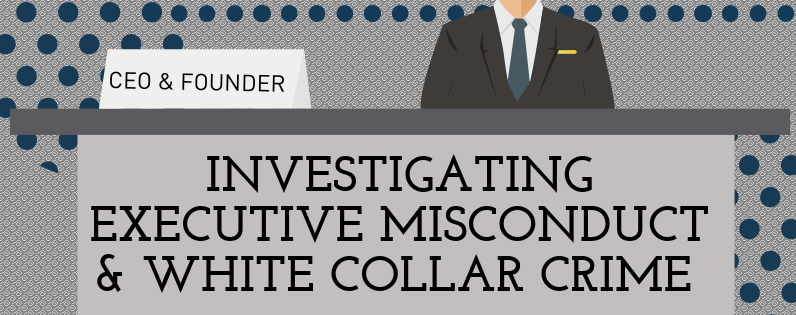Investigating Executives & White Collar Crime

Don’t let executive misconduct ruin your corporation… When it comes to running a business, the executives who are the visionaries and decision-makers that shape a company should always remain above reproach. White collar crimes have the potential to pull a business up from the root with devastating consequences. Unfortunately, Americans know from media coverage and […]
3 Most Common Types of Corporate Crisis
[et_pb_section fb_built=”1″ admin_label=”section” _builder_version=”3.22″][et_pb_row admin_label=”row” _builder_version=”3.25″ background_size=”initial” background_position=”top_left” background_repeat=”repeat”][et_pb_column type=”4_4″ _builder_version=”3.25″ custom_padding=”|||” custom_padding__hover=”|||”][et_pb_text admin_label=”Text” _builder_version=”4.6.5″ background_size=”initial” background_position=”top_left” background_repeat=”repeat” hover_enabled=”0″ ol_item_indent=”24px” sticky_enabled=”0″] What is a corporate crisis? While exact definitions may differ, a corporate crisis is generally defined as “an event, situation, or public initiative that threatens the company’s ability to effectively operate its business. A crisis can escalate into […]